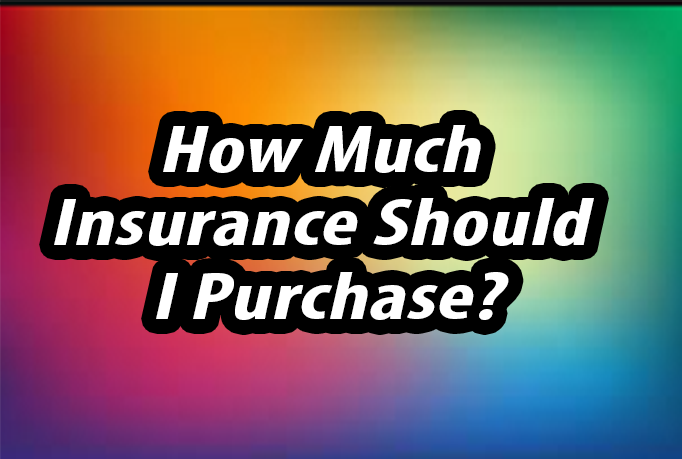The nominal amount or "death benefit" of the
insurance firm (that is, the amount of income paid to the beneficiary) must be
high enough to substitute the after-tax revenue you would have earned peradventure
you had lived a complete life, assuming you could pay the annuity for that figure.
In other words, insurance substitutes income that you did not have the
opportunity to earn by living and working until retirement as a result of an
early death.
You may want to ask the question "How Much Insurance Should I Purchase?"
An adequate insurance amount allows your family to maintain
their lifestyle, even if your income is no longer present. The actual amount
you must buy depends on your current and future income, any special
circumstances that affect you or your family, and your current premium budget.
Term or Whole Life?
Some people prefer to drive Lincoln, Cadillac, or Rolls Royce, that has all the electronic devices that make driving as safe and easy as possible. Some others people prefer brands that are less personalized, which are as reliable as their more expensive counterparts, but need more hands-on attention.
Also Read: A Beginner's Guide to Insurance
Whole life is "Cadillac" insurance. The firms try
to do everything on your behalf, specifically investing a part of your premiums
so that the yearly cost does not increase as you age. The investment property
of insurance means that generally, premiums are higher than a similar term plan
of the same face value. After all, whole life insurance is meant to cover your
entire life.
On the other hand, term insurance, is temporary life
insurance. There are no excessive premiums to invest, no promises or guarantees
after the term, which ranges from 1 to 30 years. The yearly premium for term
insurance is usually lower than life insurance and it lacks an investment
component, however your premiums will go up (often dramatically) once the term
ends.
Both types of life, term or life insurance (or one of its derivatives) have advantages and disadvantages; both have their place based on the buyer's wants, needs, and financial goals. A trained professional insurance agent can help you decide which kind of policy is best for you based on your circumstances. But whichever you choose, make sure you have enough insurance to meet your short-term and long-term goals.
Conclusion:
There are people who erroneously believe that life insurance
is a scam. The reason is because premium money is lost if death does not occur
within the coverage period (in the case of term insurance), or because many
people live till old age and continue to pay for permanent premiums. These
naysayers liken life insurance protection to gambling and completely give up
protection.
There are those who believe that life insurance is of no help
to them. The answer for these people is that it is true! The fact is, life
insurance is a way of caring for responsible individuals to help make sure that
their families can keep moving forward in the event of their untimely passing
away, which is a really difficult time of loss. Of course, no one knows when
you will die. It may be today, tomorrow, or 70 years in the future, but it will
eventually happen.




0 Comments